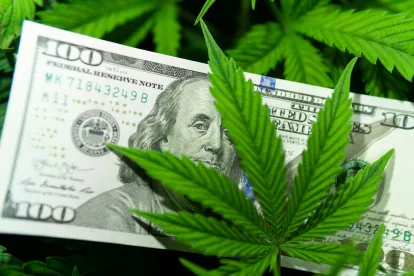The Agriculture Improvement Act of 2018 ("Farm Bill") became law more than two years ago, decriminalizing hemp and its derivatives and opening the door for American farmers, manufacturers and retailers to create and explore new commercial markets for the crop and its products.
Since then, the market for cannabinoids has exploded, including cannabidiol or "CBD" products. Other sectors of the industry are also seeing a new wave of growth and development within their ranks, including new market opportunities and commercial traction for food, fiber, and industrial uses of the crop.
Like any other industry, hemp businesses need traditional banking and financial services to continue their success. But obtaining reliable deposit account services, commercial loans, and merchant services has proven to be a challenge for the industry. Many banks and credit unions have opted out of the market due to perceived difficulties, expenses, and risks when dealing with hemp participants. But some financial institutions are actively seeking to fill that banking void in the market, including West Town Bank & Trust.
Banking Hemp is Legal
Banks and credit unions are allowed to legally bank hemp businesses. The Federal Reserve, Federal Deposit Insurance Corporation, Financial Crimes Enforcement Network, Office of the Comptroller of the Currency, and Conference of State Bank Supervisors issued guidance in December 2019, and again in June 2020, to provide clarity on the issue for banks. The National Credit Union Administration also issued guidance in June 2020 affirming the ability of credit unions to service the industry. The bottom line is that hemp and hemp products are legal, and banks are allowed to do business with companies that operate within the law.
Compliance 101
Banks and credit unions must monitor and comply with a host of regulatory obligations under state and federal law, including obligations arising under Bank Secrecy Act/Anti-Money Laundering (BSA/AML) regulatory requirements. And, for those banking hemp-related business customers, banks and credit unions must conduct and monitor additional layers of due diligence and ongoing compliance programs. Those include, but are not limited to:
-
Obtaining basic identifying information about hemp businesses through application of "know your customer" and risk-based customer due diligence programs;
-
Obtaining and verifying customers' beneficial ownership information;
-
Establishing risk-based procedures for ongoing customer due diligence; and
-
Obtaining the customer's government-issued licenses, authorities, and consents, where applicable to the customer's business or operations.
At the end of the day, the onus is on the bank or credit union to seek and obtain information sufficient to assess the level of risk posed by each customer, its business and products, to develop an appropriate risk profile on a customer-by-customer basis, and to conduct ongoing monitoring to identify and report suspicious transactions. Although Suspicious Activity Reports (SARs) are not required to be filed on customers solely because they are engaged in the growth or cultivation of hemp, or the production or sale of hemp products, they may still be necessary where suspicious activity is observed for a customer.
Laws and Regulations are Evolving
The laws and regulations for hemp and hemp products are continuously changing on both the state and federal levels. The USDA issued its Final Rule for domestic hemp production on January 15, 2021. Many state governments have opted into USDA-approved state-level hemp production plans within their borders. Some states are continuing to operate their hemp production pilot programs under the authorities granted by the 2014 Farm Bill. A patchwork of state-level laws, rules, and regulations have cropped up around the country for the extracting, processing, manufacturing, storing, packaging, distributing, and retailing sectors of the hemp industry. The laws are not consistent from state to state.
Finding Good Partners is Key
The patchwork of state laws for hemp and hemp products, and the constantly developing legal and regulatory frameworks within the industry, necessitate that banks and credit unions have strong partners when entering the market. It is crucial to work with legal counsel knowledgeable in both banking (or credit union) legal and regulatory matters, and hemp-specific legal and regulatory matters. Outside vendors can greatly assist an institution in its onboarding of customers and initial due diligence efforts, but identifying the appropriate partners and platforms for those efforts is key. Not all hemp is created equal. And leveraging the knowledge and experience of your advisors and vendors can greatly reduce an institution's regulatory risk, legal risk, reputational risk, and the overall costs and headache of administering compliance plans for hemp customers.
The Green Lining
With careful recordkeeping and proper risk management, banks and credit unions can increase their overall deposits, loans, and merchant services (if available) by taking hemp-related businesses as new clients. It takes time and intentional effort to build out a comprehensive due diligence and compliance platform. But, as the laws and regulations surrounding hemp (and cannabis, generally) continue to change and develop, the number of high-quality hemp customers with banking needs will continue to grow.





 />i
/>i
